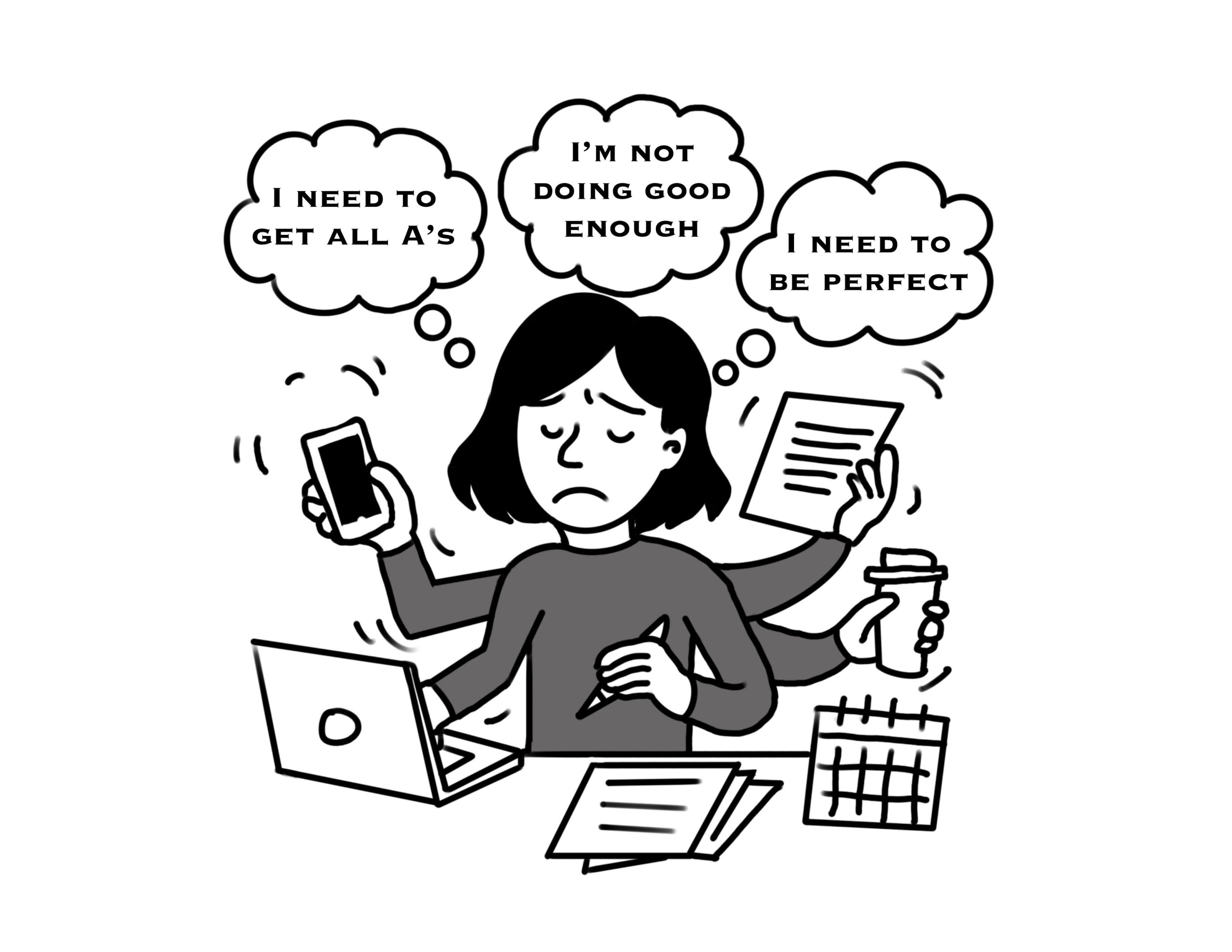

Asking the opinion of others, realigning expectations and practicing self-compassion are ways to combat perfectionism, according to Jessica A. Kent’s article on Harvard Summer School’s website. Zeinab Agbaria | The Washtenaw Voice
Sasha Hatinger | Staff Writer
I have always had unrealistic and unhealthy expectations for myself, with the pressure for perfection riding heavily on my back. Striving for more, desiring to manifest my dreams into reality, I struggle balancing my all-or-nothing attitude in all that I do.
If I am going to invest my time and energy into a task, I commit to doing my best. There is little to no room for error, so I believed and so I lived by, for most of my life. I do my best to learn from mistakes, to ensure the likelihood of repetition is close to none.
I do all this not just for myself, but for my future self and generations to come. Having two children who are growing and developing before my eyes, I am teaching them good work ethic, commitment, a focus on studies, schooling and how to be more than productive members of society, but voices of change, willing to take action to do the necessary work.
There is a lot that goes into that, day to day. Managing and balancing kids, school, work and having a life outside of that is a lot for one person. Expecting that all that I do be perfect in all capacities is beyond impossible–it is something that can’t be expected of a person. Yet, it is something that is more than common in the lives of students.
“A lot of students focus on the outcome that they want and don’t recognize when they make progress,” Karolyn Lehn said, a personal counselor at WCC.
“When students or anyone is constantly striving for perfection, it’s not sustainable,” Lehn said.
Lehn went on to mention that the pressure for perfection that so many students feel leads them to breakdown or burnout.
For me, instead of pursuing unattainable perfection, I should process the progress that has been made.
“I like the quote that (says) you should strive for progress, not perfection,” Lehn said.
Seeking progress, rather than perfection, is a solid solution to the pressure for perfection.
I can focus my energy on doing my best in all I can do right today. With hopes of accomplishing a little more each day, having the ability to self-reflect on all that has taken place allows me to see how much progress has been made.
In an article on Harvard Summer School’s website written by Jessica A. Kent, the topic of perfectionism is explored further, with solutions for those struggling with the need to be perfect. Asking the opinion of others, realigning expectations and practicing self-compassion are ways to combat perfectionism, according to Kent.
I know I can accomplish more by having a better attitude and mindset surrounding perfecting all that I do. All I can do, in reality, is my best.
Below are recent employment want ads that have been posted with WCC Center for Career…
Zakeria Almajrabi | Photo and Writing Contributor TEDxWCC is an annual event hosted towards the…
Some policies under review amid federal changes Lily Cole | Editor ONGOING COVERAGE At the…
5 first place honors received, including general excellence Alice McGuire | Deputy Editor On April…
Possible cuts, addition to be discussed at next meeting Yana McGuire | Staff Writer WCC’s…
Zachary Cleveland | Contributor Upwards of 1,500 Washtenaw County residents gathered under a chilly grey…